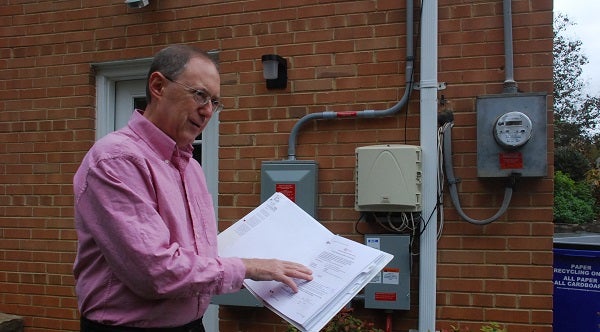PUCO rule decision makes it more difficult for solar to benefit everyone

At the end of last year, the Public Utilities Commission of Ohio (PUCO) issued several decisions relating to how solar homeowners are credited for the electricity their solar energy systems produce. Some parts of the net metering rule updates were positive, some were not. Solar supporters should be particularly concerned about a decision to reduce the capacity compensation credits. This change is unjustified as rooftop solar is good for solar homeowners and non-homeowners alike and provides a real value to both.
For solar panel owners, going solar lowers monthly electric bills, increases home value, and provides energy independence. Beyond individual solar owners, solar electricity also benefits society at large, creating local jobs, generating local wealth, improving energy security, and improving public health. Solar also benefits the entire electric grid.
The brilliant tangle of wires, poles, substations, and meters that we call “the grid” is made stronger, cheaper, and more efficient thanks to distributed solar energy (like rooftop solar panels). This translates to long term savings for all ratepayers.
Solar provides power when electricity demand is highest
Solar panels produce electricity during the day. At the same time, higher electricity demand forces utilities to meet energy needs with more expensively produced electricity. This demand raises electricity prices for everyone. The addition of solar to the grid helps lower everyone’s cost of electricity by lowering demand from solar users, and also adding electric capacity to meet non-solar users’ needs. Net metered customers can generate excess electricity that can be used by their neighbors.
Rooftop solar saves transmission and distribution costs
Solar generation produces electricity at or near the site of demand. Solar does not require the investment in transmission or distribution lines that electricity from large, centrally-located plants do. Producing electricity closer to demand is also more efficient. It is estimated that roughly 6% of electricity produced in this country is lost due to transmission.
Net metered solar creates good, local jobs
Solar energy won’t continue its impressive growth if solar customers are denied from receiving a fair price for the electricity they generate. Nationwide, there are more than 174,000 employed in the solar industry. This figure is expected to grow by 20% just this year. Most solar workers are in jobs, like installation, that can’t be outsourced.
Expanded distributed solar is a win for everyone
Homeowners going solar helps everyone and are already being undercompensated for the value of that power they are producing. A reduction is not warranted. Distributed generators provide benefits to everyone connected to grid. Electricity policies should reflect this.
